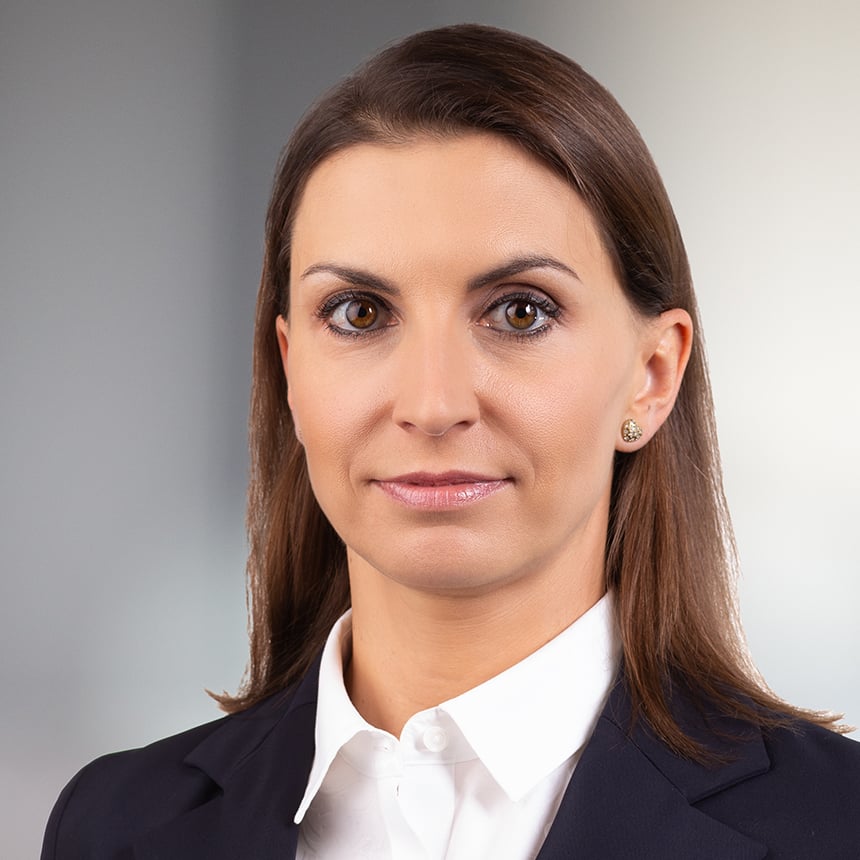Amendment to regulations on hybrid mismatches, quick fixes and MDR
On 22 June 2020 the President signed an amendment passed by the Sejm on 28 May 2020 concerning, without limitation, the acts on: CIT, VAT, tax information exchange with other countries, and the Tax Code.
The amendment applies to three major issues: implementation of ATAD2 which regards hybrid mismatches, implementation of the directive which introduces quick fixes in VAT, and continued implementation of MDR directive regarding automatic exchange of cross-border scheme information.
Presented below are the major changes in each of the three areas.
1. Changes concerning hybrid mismatches
ATAD2, implemented in the Polish tax system upon the above amendment, is intended to extend the scope of the previous ATAD to include third countries other than the EU Member States. The main purpose of both directives is to prevent tax avoidance which consists of taxpayers taking advantage of differences in treatment of certain arrangements in different EU Member States and, based on ATAD2, also in third countries.
Changes in this respect are to take effect on 1 January 2021 and apply to revenue (income) earned in the tax year starting after 31 December 2020.
The amendment introduces chapter 3a to the CIT Act. The chapter contains a number of new definitions from regulations on anti-tax avoidance which takes the form of:
- hybrid financial instruments, i.e. financial instruments which are treated differently for tax purposes in different jurisdictions,
- hybrid entities, i.e. entities which are treated as non-transparent for tax purposes in one country while being considered transparent for tax purposes in another country.
Anti-tax avoidance is to be achieved generally by exclusion of specific expenses from deductible costs or by implementing the obligation to recognise income from gains excluded from the category of revenue under the CIT Act.
The main goal of the new regulation is to counteract:
- double deduction – which generally consists of recognizing an expense incurred for the same purpose as a deductible cost in different countries, without recognizing corresponding income in other countries,
- deduction without inclusion – which means, without limitation, that a payment is recognized as deductible without corresponding inclusion of the payment in income in the other (recipient’s) Member State,
which occur in specific situations identified in detail in the provisions of the new chapter 3a, as the so-called structured arrangement defined by the new regulations, which is made between associated enterprises (a new definition of an ‘associated enterprise’ is introduced for the purpose of the new regulations).
What needs to be done?
Taxpayers should verify the relevant financing models they use, in particular intra-group financing, to determine whether they meet the definition of hybrid mismatch, in particular if interest on loans is passed on by its direct recipient. Also, each new financing idea should be subject to an in-depth analysis in terms of the possibility of recognizing expenses incurred for the financing as tax costs.
2. Quick Fixes
The amendment also implements changes to VAT, referred to as quick fixes, which, according to the EU directive, should be in force in Poland since 1 January 2020 and which apply to:
- chain transactions,
- material requirements for applying 0% VAT to intra-Community supply,
- movement of goods under the call-off regime,
The changes are to take effect on 1 July 2020.
Chain transactions
The amendment is aimed at ensuring greater certainty with respect to intra-Community supply or export in chain transactions, which have so far been governed primarily by judgments issued by the ECJ, national courts and by practices followed by tax authorities, or alternatively by regulations of Member States.
The amendment provides for automatic assignment of said transaction in a situation where the responsibility for transport rests with the so-called intermediary, i.e. an entity other than the initial supplier, who dispatches or transports goods on their own or through a third party acting on their behalf.
According to the amended regulations, if an analysis of the transaction results in a finding that it is an intermediary that is responsible for transport, the transaction will be assigned to supply made to this entity. A situation where the intermediary provides its supplier with the VAT-EU number assigned to it by a Member State from which goods are dispatched or transported is an exception. In this case the supply made by the intermediary should be a an intra-Community supply. For example, if the following parties participate in a transaction: A – a Polish entity, B – an entity from Germany, responsible for transport and C – an entity from France, the ICS will take place between A-B, unless B uses a VAT-EU number assigned to it in Poland, in which case the transaction B-C will be recognised as ICS.
Requirements for applying 0% VAT for ICS
The amendment supplements the list of material requirements that need to be satisfied to benefit from 0% VAT in ICS transactions to include the requirement:
- for the buyer to hold a valid VAT-EU number assigned by a Member State other than the state in which the dispatch of goods commenced – for this reason, pursuant to the amended Art. 42(1)(1) of the VAT Act, the buyer will be obliged to provide the supplier with its VAT identification number,
- to submit correct summary information (VAT-EU return) – this requirement can be waived if the supplier duly explains the error to the head of the tax office, in writing.
Both of the above requirements are already included in the Polish VAT Act, but pursuant to judgments issued by the ECJ, they should be treated as formal requirement to apply 0% VAT, which, if not satisfied, deprive the taxable person of the right to use 0% VAT in intra-Community supply.
Additionally, we would like to remind you that 1 January 2020 marked the effective date of the Council Implementing Regulation (EU) 2018/1912 which introduces the assumption that goods under intra-Community supply are dispatched or transported from one Member State to another Member State and the taxable person can use 0% VAT if in possession of certain documents listed therein. For more information in this respect see: https://www.andersentaxlegal.pl/newsletter/podatki-na-biezaco-istotne-zmiany-w-zasadach-dokumentowania-transakcji-wdt-oraz-w-transakcjach-lancuchowych-od-stycznia-2020-r/
Call-off stock
Until recently, the VAT Directive contained no special rules for call-off stock (in Poland known as consignment stock). This led to situations where some countries, including Poland, adopted their own regulations in this respect, frequently discrepant, and other countries had no regulations in this area at all.
Quick fixes, and the amendment, implement solutions similar to those adopted by Poland throughout the EU. They provide as follows:
- the supply of goods to call-off stock will be considered intra-Community supply in the state of dispatch and the supplier will not be obliged to register in the country of the consignment stock location (at the same time the supplier cannot have either a registered office or a permanent establishment for VAT in this country),
- the acquisition of goods will be recognized as intra-Community acquisition (ICA) in the country of arrival of the goods.
To apply the above rules, it will be necessary to transfer the economic ownership of the goods (the right to dispose of the goods as their owner) within 12 months of their arrival at the warehouse operating under the call-off stock regime.
For Poland it is also important that:
- within 14 days of placing the first goods in the warehouse, the entity which operates a consignment stock in Poland will be obliged to submit an electronic notification (using the required form) on operation of a warehouse used in the call-off stock arrangement, under the sanction of a fine.
- the supplier, buyer and the entity operating the warehouse (if a third party) will also have additional record-keeping obligations.
What needs to be done?
In the context of the above changes, we recommend reviewing chain transactions with the aim of determining whether the amendment does not modify settlements, reviewing the applicable compliance rules and verifying counterparties in cross-border transactions.
3. MDR
Tax scheme information exchange
As regards MDR, the amendment is intended primarily to complete the implementation of the directive and to impose upon the Head of National Fiscal Administration (KAS) the obligation to forward to EU Member States, and to a limited extent also to the European Commission, the information on cross-border tax schemes. The information will be provided within a month from the end of the quarter in which the Head of KAS received it. The first submission of information received until 30 September 2020 should be made by 31 October 2020.
Repeated cross-border tax scheme reporting
It should be noted that, given the need to adapt the Polish tax scheme reporting to the EU tax scheme reporting, the Act also provides for new rules of informing about tax schemes. Intermediaries, beneficiaries and supporters will be obliged to repeatedly provide the Head of KAS with information about cross-border tax schemes if the first step was made in the period between 26 June 2018 and 30 June 2020.
Intermediaries should provide the information by 31 July 2020, beneficiaries – by 16 August 2020, and supporters – by 31 August 2020. At the same time, the regulations follow the same logic as regards the sequence of reporting by individual entities and validity of the obligation to provide information only if the previous entity in the sequence failed to do so. Additionally, unlike under the previous regulations, supporters are also obliged to report those schemes where the first step in implementation was made before 1 January 2019 (so far this obligation applied to intermediaries and beneficiaries only). It also seems that repeated reporting applies to MDR-3 submitted by beneficiaries. However, there is a positive change in this respect: MDR-3 can be submitted in accordance with the representation of the taxpayer and not all members of the management board, which was the case so far.
The above obligation applies to situations which so far have not been subject to the reporting obligation (e.g. tax havens not referred to in income tax laws in connection with a changed definition of the specific hallmark, or reporting by the supporter), but also to schemes reported earlier because their arrangement should be adapted to the EU reporting schema.
Implementation of the EU reporting schema will also necessitate invalidation of the existing TSNs, which will be made by operation of law, with no decision from the Head of KAS, and cross-border tax schemes will be assigned new numbers after their repeated reporting.
The amendment of the MDR regulations will take effect on 1 July 2020.
What needs to be done?
In connection with the obligation of repeated cross-border transaction reporting, we recommend reviewing cross-border schemes that have already been reported in terms of the need to report them again, and transactions which could potentially be subject to the obligation of reporting according to the new rules, made after 25 June 2018. The respective actions should be undertaken already now due to short terms provided for reporting by intermediaries, supporters and beneficiaries.
4. Summary
The amendment described above implements a number of complex solutions, and their interpretation under specific circumstances will be a challenge for taxpayers. Should you have any questions or doubts regarding the issues discussed here, we are ready to assist you.
KONTAKT
E: monika.winnik@pl.Andersen.com
T: +48 22 690 08 62
M: +48 669 486 444
E: elzbieta.lis@pl.Andersen.com
T: +48 32 731 68 58
M: +48 664 948 038
E: elzbieta.stawarczyk@pl.Andersen.com
T: +48 32 731 68 83




